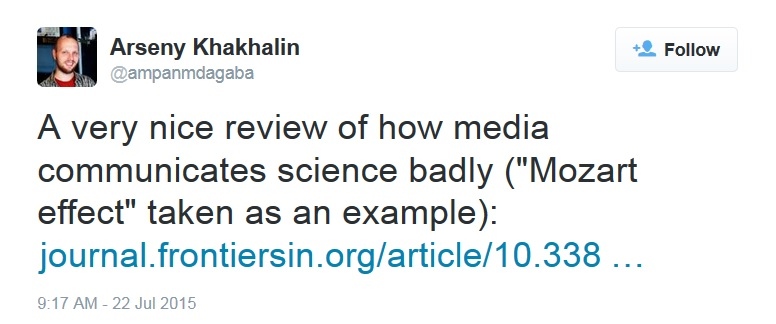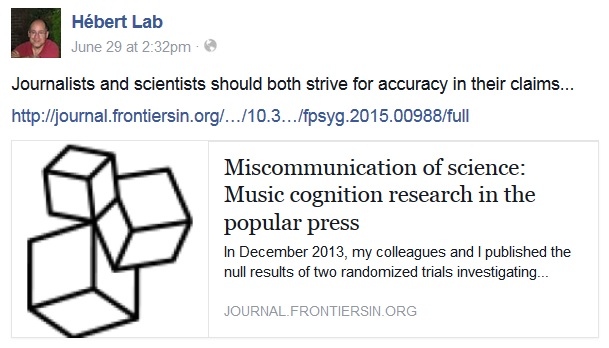Aggregated News
Researchers often complain about inaccurate science stories in the popular press, but few air their grievances in a journal. Samuel Mehr, a PhD student at Harvard University in Cambridge, Massachusetts, discussed in a Frontiers in Psychology article1 some examples of media missteps from his own field — the effects of music on cognition. The opinion piece gained widespread attention online. Arseny Khakhalin, a neuroscientist at Bard College in Annandale-on-Hudson, New York, tweeted:

Seeing room for blame on both sides, Terry Hébert, a pharmacologist at McGill University in Montreal, Canada, posted on Facebook:

Mehr gained first-hand experience of the media as the first author of a 2013 study in PLoS ONE2. The study involved two randomized, controlled trials of a total of 74 four-year-olds. For children who did six weeks of music classes, there was no sign that musical activities improved scores on specific cognitive tests compared to children who did six weeks of art projects or took part in no organized activities. The authors cautioned, however, that the lack of effect of the...



